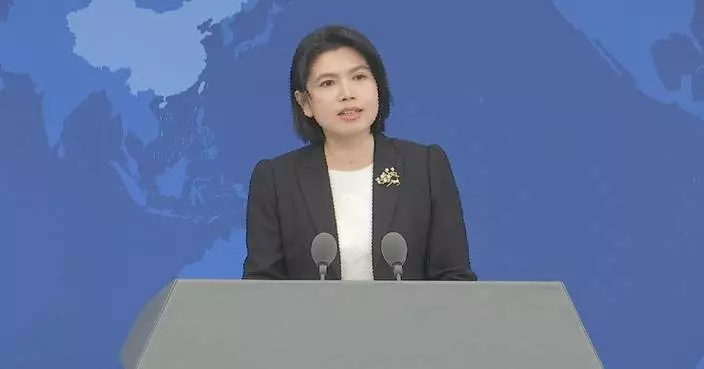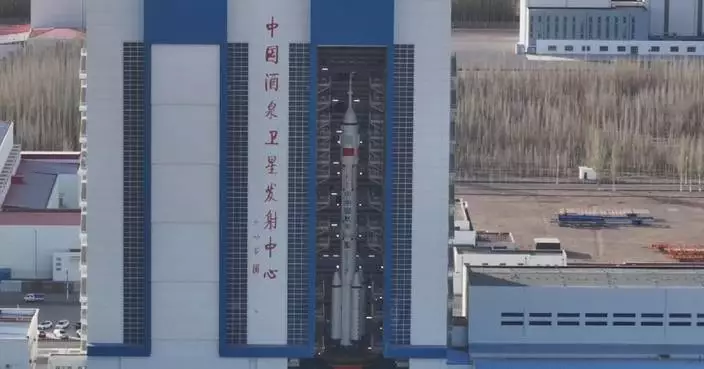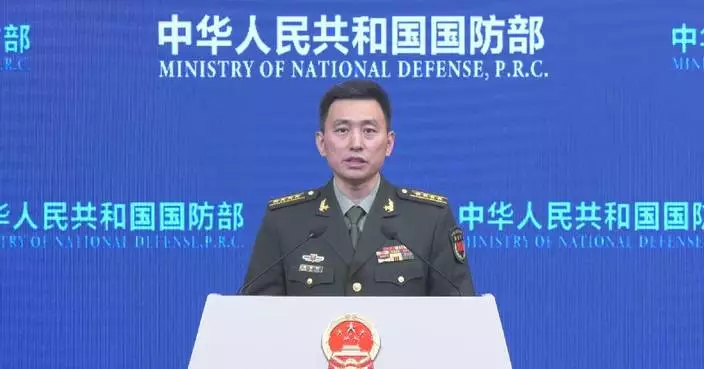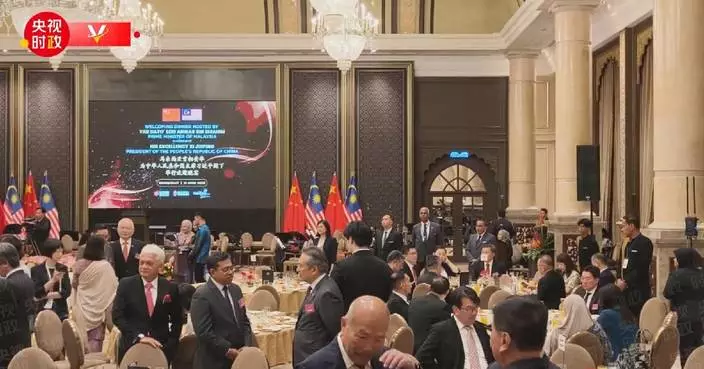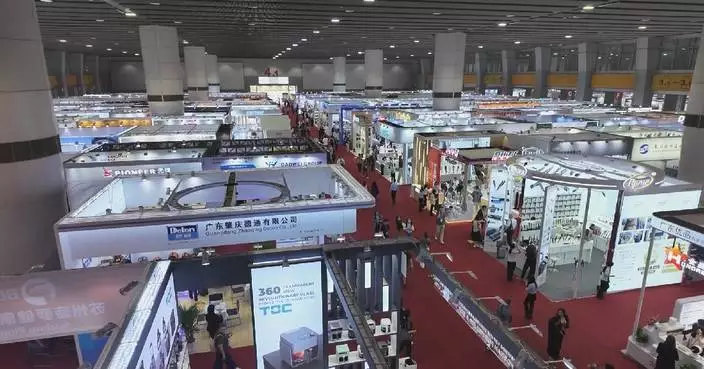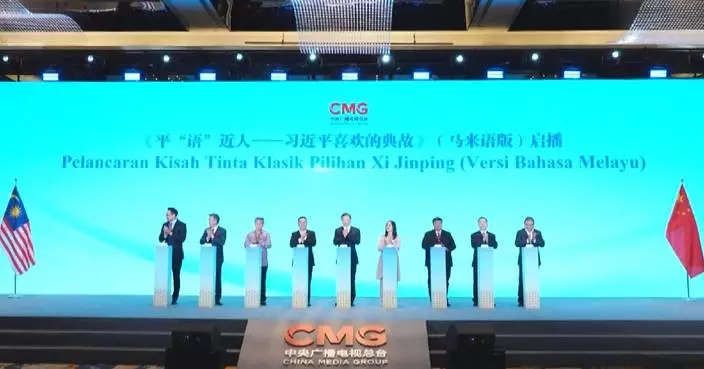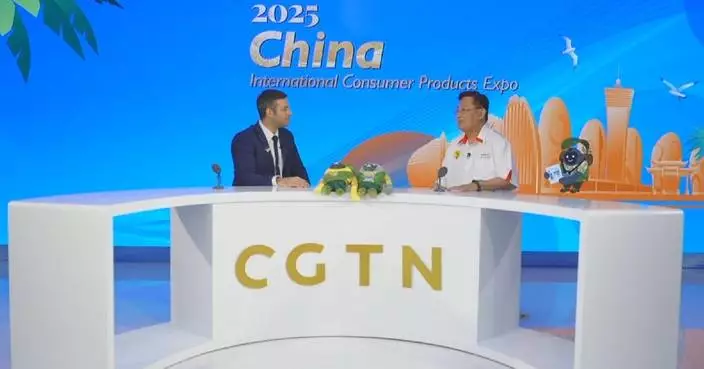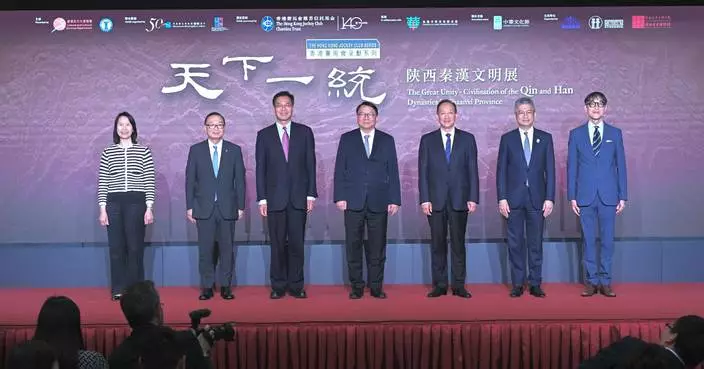Vaughn Barber, Chair of the China-Australia Chamber of Commerce (AustCham China), sees significant potential for closer economic ties between China and Australia despite the challenges posed by a changing global trade environment.
He expressed optimism about the two countries' resolve to manage uncertainties, highlighting recent positive signals from the Chinese government regarding efforts to attract foreign investment.
Barber told China Global Television Network (CGTN) that China's shift toward a new growth model, coupled with Australia's efforts to diversify its trade portfolios, positions both countries to better endure the disruptions caused by the United States' recent tariff measures.
He expressed confidence that most companies represented by AustCham China are still optimistic about the China market.
"We see China responding by emphasizing 'dual circulation, boosting domestic demand and staying open for global engagement.' On the Australian side, companies are trying to diversify their exposure. At the same time, the government restating its commitment to and the importance of rules-based trading system. It's important to appreciate that Australian companies are not retreating from the China market. Seventy percent of the more than 400 companies that we surveyed recently have said that China remains the top or one of the top three priority markets for global investment, and about the same number of companies report optimism about the opportunities in the market," the AustCham China chair said in the interview in Beijing on Friday.
Barber discussed the impact of the Trump administration's sweeping "reciprocal tariffs," noting the likelihood of retaliatory measures from America's trade partners and the risk of a global trade war.
He acknowledged the dual nature of these shifts, highlighting the challenges while expressing optimism about the potential for China and Australia to enhance their trade cooperation.
"Look at the challenges arising from U.S. tariff policy, I would put them into three categories. The first is what's going to be the impact on particularly agricultural exports from Australia to the U.S.? Second, how will U.S. companies be impacted by retaliatory tariffs? And then finally, how would that affect China's demand for Australia's exports? That's in terms of challenges. In terms of opportunities, we would expect China will impose some degree of retaliatory tariff that would impact particularly agricultural and energy exports from the U.S. to China, and that may open up opportunities for Australia in segments like beef, other agricultural segments, and energy. And that's certainly something that we're alive to and watching. So yes, challenge and opportunity," he said.
Barber expressed optimism about the improving relations between China and Australia, noting that he sees this as the key driver of Australian investor confidence in China.
He highlighted the positive signals from a series of high-profile political events in China, including last July's third plenary session of the 20th Central Committee of the Communist Party of China, which promised comprehensive economic reforms, the Government Work Report in March pledging increased efforts to attract foreign investment, and President Xi Jinping's recent meeting with prominent global executives in Beijing.
"The first thing is the return of a stable bilateral relationship, that has been very important. I remember saying that's the number one factor influencing the decision about investing in China. And since the third plenum last year, then the Work Report, and then the president's meeting with foreign business executives last week, sending a very strong signal of the support for foreign investors, including acknowledging a number of the concerns about level playing field, regulatory certainty, predictability, et cetera. So, that signaling combined with the policy responses around boosting consumer demand, very favorable for Australia, about the importance of technology innovation. These are all good signals for foreign companies looking at the market," said Barber.

AustCham chair highlights China-Australia trade cooperation opportunities




